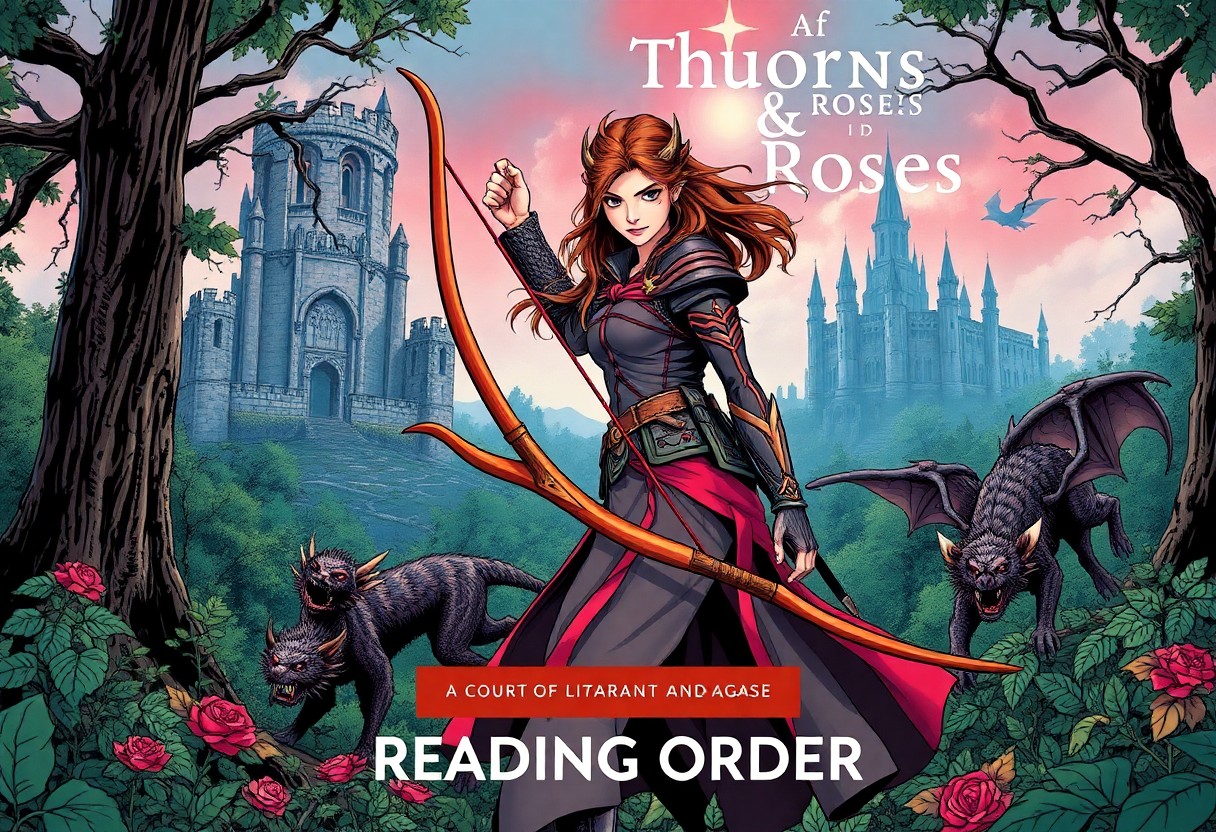Many readers find themselves deeply moved by the powerful storytelling and poignant themes found within The Book Thief. In this post, I share some of the most unforgettable book thief quotes that capture the essence of humanity, loss, and hope. Whether you’re seeking inspiration or a fresh perspective, these quotes from the book thief offer profound insights you can carry with you. Together, we’ll explore how Markus Zusak’s words continue to resonate and challenge our understanding of life and love.
The Artistic Splendor of Words
Words in The Book Thief do far more than tell a story—they paint vivid scenes and shape deep emotions in ways few novels achieve. Zusak’s language moves between delicate whispers and powerful shouts, capturing the essence of life’s beauty and brutality. Our connection to the characters grows stronger because every word carries purpose and weight, making his storytelling feel both intimate and expansive at once. These book thief quotes reveal how language itself becomes a living, breathing force within the narrative, inviting us to savor each moment as more than just text on a page.
The Power of Literary Imagery
The richness of Zusak’s imagery stands out in passages where senses intertwine, such as when Liesel “could smell the pages” and “almost taste the words.” These vivid descriptions transform reading into a multi-sensory experience, blurring the lines between reality and imagination. Quotes from the book thief consistently harness metaphor and symbolism, using colors, sounds, and textures to evoke emotions that resonate long after the book is closed. This mastery of imagery pulls us inside the world, making the intangible tangible and the unseen unforgettable.
The Emotional Weight of Language
Language in The Book Thief carries profound emotional responsibility. Phrases like “The injury of words. Yes, the brutality of words.” confront us with the dual nature of language—its capacity to harm or heal. The book’s words are not neutral; they are imbued with the power to shape identity, survival, and resistance. We can feel how each sentence bears the weight of history and personal struggle, making every quote from the book thief a vessel for deep human experience.
Exploring the emotional weight of language further, Zusak demonstrates that words can be both weapon and refuge. Liesel’s evolving relationship with words reflects a broader human truth—language shapes how we understand pain, hope, and connection. The contradictory feelings expressed in “I have hated words and I have loved them” encapsulate this tension perfectly. Zusak’s ability to portray language as a living force reminds us that every word has lineage and consequence, carrying memories of both darkness and light that linger beyond the final page.
Insights on Family Dynamics
Family relationships in The Book Thief are painted with both tenderness and tension, revealing the layers beneath simple connections. Markus Zusak crafts characters who embody kindness and complexity, like Hans Hubermann, whose eyes reflected a gentle strength, and Rosa, whose gruff exterior masked deep care. The interplay between belonging and abandonment echoes throughout, showing how love often wrestles with hardship. These book thief quotes offer a poignant look at how family isn’t just about blood—it’s about the fragile, sometimes painful bonds we form over time.
The Complexity of Parental Relationships
The parental figures in the story defy easy roles, blending warmth and imperfection. Hans’s quiet kindness contrasts with Rosa’s sternness, yet both provide a sanctuary for Liesel. This complexity reflects the tension between protection and discipline, where kindness is not weakness, and love is sometimes hidden behind gruff words. The way Zusak portrays these relationships challenges us to see the messy reality of family, rather than idealized versions. As these quotes from the book thief illustrate, parental love can be unspoken yet undeniably powerful.
The Struggle for Connection and Belonging
Liesel’s search for belonging highlights the vulnerability inherent in forming human connections. Though she’s repeatedly abandoned, the moments of acceptance she finds with her foster parents and friends offer deep emotional contrasts. The feeling of being seen — whether through Hans’s attentive eyes or the music metaphor of her papa as an accordion — underscores the profound human need for connection in a fractured world.
Diving deeper, Liesel’s experience reveals that belonging isn’t guaranteed; it’s earned through patience, small acts of kindness, and shared stories. The ambiguity in familial love, where constant reminders of abandonment linger, paints a more authentic, raw picture. These book thief quotes remind us that connection is as much about endurance through hardship as it is about joyous acceptance, a nuanced portrayal of how humans struggle yet persevere to find their place.
Reflections on the Human Experience
Exploring the layers of human existence through Zusak’s narrative reveals a raw and unfiltered look at our complexities. The delicate balance between light and darkness, hope and despair, plays out in vivid detail. His storytelling doesn’t shy away from contradictions, showing how love can coexist with pain, and how ordinary moments become profound. The quotes from The Book Thief encapsulate these nuances so powerfully, inviting us to reflect on what it means to be both broken and beautiful, flawed yet resilient.
The Duality of Human Nature
We often find ourselves caught between opposing forces—kindness and cruelty, creation and destruction—as Zusak highlights when he states, “I’m always finding humans at their best and worst.” This duality isn’t just an abstract idea but a lived reality throughout the story. Moments of compassion are shadowed by violence, and the delicate innocence of Liesel contrasts with the harshness of war. These book thief quotes capture that intricate dance, reminding us that embracing our contradictions is part of truly understanding humanity.
The Search for Meaning Amid Mortality
The persistent awareness of death in the novel sharpens the quest for purpose and understanding. Phrases like “*HERE IS A SMALL FACT* *You are going to die*” ground us mercilessly in mortality, yet it’s amidst this certainty that characters carve out meaning through love, storytelling, and survival. The tension between the finite nature of life and the desire to leave a mark resonates deeply, urging us to grapple with our own impermanence while seeking moments that make living worthwhile.
Diving deeper, the way Zusak interweaves death with hope is especially striking. Death is not merely an end but a lens through which every action and relationship gains urgency. Liesel’s story itself becomes a testament to this struggle—her embrace of books and words as a means to resist oblivion shows how meaning often emerges from the very shadows of mortality. The quotes from The Book Thief compel us to rethink how we confront death, not just as a cessation but as a catalyst for profound human connection and resilience.

Addressing the Shadows of Antisemitism
Markus Zusak’s quotes from The Book Thief confront the harsh realities of antisemitism without sugarcoating its impact. Through characters like Max Vandenburg, the narrative reveals how Jewish identity became a target of relentless persecution, forcing many into hiding or worse. The tension between Liesel’s relative safety and Max’s constant threat highlights how brutal and pervasive antisemitism was during this era. These moments invite us to consider not only the historical facts but also the emotional weight carried by those living in such conditions, deepening our understanding through both sorrow and empathy.
The Perspective of Jewish Identity in the Narrative
The storyline gives a raw, human dimension to Jewish identity amid Nazi Germany’s brutality. Max’s experience epitomizes the precariousness of being Jewish then—“Forget the cold and the loneliness. He was a Jew,” captures this vulnerability powerfully. His survival hinges on secrecy, confined to hidden places, underscoring the isolating terror fueled by hatred. This perspective brings to light the resilience and quiet dignity of those persecuted, enriching our connection to the quotes from The Book Thief.
The Impact of Social Context on Individual Stories
Social context frames every character’s journey in The Book Thief; it shapes choices, fears, and relationships in profound ways. Just as Liesel’s life is shadowed by war and loss, Max’s Jewish identity marks him with danger that reverberates beyond personal experience into systemic cruelty. The era’s oppressive environment is inseparable from their stories, reminding us that these quotes from the book thief don’t just portray personal struggles but also echo the larger historical nightmare that engulfed millions.
Diving deeper into impact, the social context surrounding the narrative molds not just plotlines but the emotional texture of the characters’ lives. For example, Max’s status as a Jew means he cannot simply live openly; his existence becomes a daily act of resistance and fear. Liesel’s foster family embodies the conflicting forces of kindness within a society riddled with suspicion. These intertwined realities amplify how the historical moment is not background noise but a driving force in every decision, every whispered word, and every stolen moment of hope found amidst despair.

The Inevitability of Death
Death weaves itself intricately throughout The Book Thief, acting as a constant, unyielding presence that shapes every character’s journey. Zusak’s portrayal doesn’t shy away from the pain and finality of death but rather captures its inescapable role in human experience. Through vivid imagery—like carrying “five hundred souls… like suitcases”—death becomes both a burden and a witness to the fragile beauty of life. These book thief quotes remind us that death isn’t just an end; it’s a lens through which the preciousness of existence is brought sharply into focus.
The Role of Death in Defining Life
Death in The Book Thief functions less as a villain and more as a narrator, shaping our understanding of life’s value. It forces us to confront the fleeting nature of joy and tragedy, underscoring that every moment carries weight because it will eventually end. Zusak’s choice to personify death gives a unique perspective—death sees the best and worst of humanity, which reveals how deeply intertwined life’s meaning is with its inevitable conclusion. These quotes from the Book Thief implore us to appreciate life’s transient beauty.
The Balance of Acceptance and Grief
Amidst the omnipresence of death, grief permeates each loss yet is tempered by moments of acceptance. Zusak captures this delicate tension with remarkable empathy, illustrating that while death wounds, it also brings a strange kind of finality that demands understanding and sometimes, even peace. Through this balance, the narrative shows how humans carry both sorrow and resilience, often simultaneously, as they navigate the aftermath of loss.
This balance between acceptance and grief runs like a thread through the story, illustrating how characters wrestle with the pain of losing loved ones while finding ways to live on. Zusak does not offer simple consolation; instead, he exposes the rawness of grief contrasted with the inevitability of moving forward. By portraying death as both a grief-filled departure and a necessary passage, the book thief quotes deepen our grasp on how accepting loss is a complex, ongoing process rather than a single moment. It invites us to feel the full spectrum of emotions tied to mortality without shying away from their weight.
Summing up
Considering all points, I find these 25 beautiful book thief quotes capture the profound themes Markus Zusak explores in The Book Thief. These quotes from the book thief reveal deep insights about humanity, family, and the power of words that resonate with your own experiences. We can all relate to the emotions and reflections found within these lines, making the story timeless and compelling. I encourage you to revisit these quotes and see how they enrich your understanding of the novel’s impact on our perspectives.




